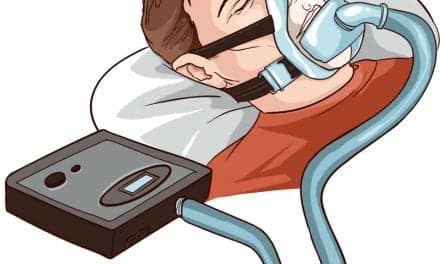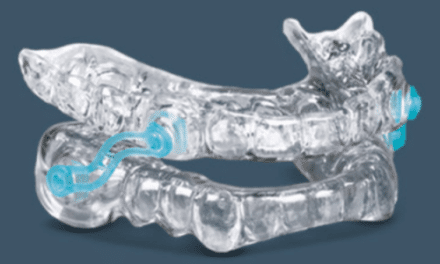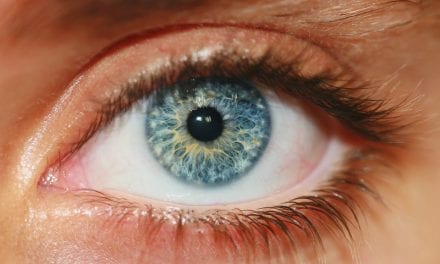Standing at the Long Island Rail Road (LIRR) Mineola station, U.S. Senator Charles E. Schumer today demanded that the U.S. Federal Railroad Administration (FRA) and the Federal Motor Carrier Safety Administration (FMCSA) reverse their abrupt decision to derail a rulemaking process that would have paved the way for required sleep apnea screening and treatment mandates for rail workers and commercial truck drivers across the nation. Schumer’s call comes after the two agencies formally backed out of their process to consider requiring sleep apnea testing on the federal level. Schumer wants both of these federal agencies to immediately reverse course and stick to the plan he fought for in 2016 that moved to make sleep apnea testing the law of the land.
“It doesn’t take Albert Einstein to understand why it is so important to begin the process of requiring sleep apnea testing across-the-board and at the federal level,” says Sen Schumer in a release. “We don’t want train engineers with undiagnosed sleep apnea, who actually hold lives in their hands, to fall asleep at the switch and we don’t want big-rig drivers to doze off at the wheel. That’s why NTSB’s recommendations to get this done should be the law of the land and why I have pushed so hard on this subject for years. This abrupt and uncalled for withdrawal by USDOT commemorates a disaster waiting to happen and that’s why I’m now calling on the both of these agencies to get these rules and this process back on track. It is high time to move forward with making sleep apnea testing a federal requirement, no ifs ands, or butts about it.”
Following a 2013 Metro-North derailment in the Bronx that tragically killed 4 people, the MTA began developing a pilot project to screen and treat Metro-North engineers for sleep disorders and later expanded the program to the LIRR. Similarly, following a 2008 accident on the T in Boston, the New York City Transit system began screening and treating subway train operators for obstructive sleep apnea. Finally in 2016, the FRA and FMCSA began to move forward with a rulemaking process that would have paved the way for required sleep apnea testing across the board; however, this week the agencies officially announced that they plan to withdraw this rulemaking process. Schumer says that after so much progress, it makes no sense for the feds to derail sleep apnea testing and without this requirement, the safety of rail passengers could be put at risk.
On Jan 4, a Long Island Rail Road train originating from Far Rockaway derailed at Brooklyn’s Atlantic Terminal, injuring 103 people. According to the National Transportation Safety Board, the train was traveling at more than 10 miles per hour when it hit a bumping block at the end of the tracks and crashed into a small room, causing the first 2 cars of the train to derail. The speed limit at this portion of the tracks is 5 miles per hour. According to reports, the engineer operating the train said he could not remember the crash. The engineer began his shift around midnight, while the crash occurred around 8 am.
In December 2013, a Metro-North train derailed near Spuyten Duyvil, tragically killing four people and injuring sixty. NTSB determined later that the conductor of the train had sleep apnea, which had caused him to fall asleep at the controls. Following the deadly accident, the NTSB again recommended that Metro-North and LIRR develop protocols for screening employees for sleep disorders and ensuring that any employees diagnosed with such a disorder, like sleep apnea, receive the treatment they need. Following this derailment, the MTA began developing a pilot project to screen and treat Metro-North engineers for sleep disorders. Similarly, following a 2008 accident on the T in Boston, the New York City Transit system began screening and treating subway train operators for obstructive sleep apnea syndrome.
Sleep apnea also played a role in the derailment of a New Jersey Transit train at the Hoboken Terminal that killed one person and injured 114. In addition to those two incidents, there are a number of other accidents, including the May 2008 derailment of an MBTA train in Newton, MA that have been at least partially linked to sleep apnea. In fact, nearly 20 percent of the major investigations completed by NTSB between 2001 and 2012 identified fatigue issues as a probable cause.
Earlier this year, Schumer called on the National Transportation Safety Board (NTSB), the nation’s premier safety organization, to launch a thorough examination into which passenger railroad systems have yet to launch sleep apnea testing programs and install inward facing cameras—and then publicize the report for all to see. Schumer explained what happens across the country when a derailment occurs: one individual rail system promises changes, yet those changes aren’t implemented or they happen far too slowly and the other railroads don’t heed the lessons—many of them sad—learned by other railroads.
The National Transportation Safety Board recommended that the Federal Railroad Administration require all railroads to screen for and treat sleep apnea more than a decade ago, after a 2001 accident in Michigan, however, some rail lines have yet to perform a single sleep apnea test. Finally, in 2016, the Federal Railroad Administration agreed to begin the rulemaking process to require sleep apnea testing for train operators but that rule has not yet been finalized.
This past week, FRA and FMCSA withdrew a proposed rule focused on requiring sleep apnea tests. Schumer said that while the MTA has committed to sleep apnea testing, a federal law would force all rail lines to conduct these tests without wiggle room. Moreover, Schumer said that a federal rule requiring these tests means that rail lines cannot one day decide to stop conducting these screenings. Schumer said that sleep apnea testing should be the law of the land for rail workers and commercial drivers. Schumer said that without proactive testing and screening, deadly derailments could keep happening and put rail passengers and everyday commuters in danger.
The Long Island Rail Road Commuter Council (LIRRCC) also supports Senator Schumer’s efforts to oppose the withdrawal of a proposed rule aimed at developing obstructive sleep apnea screening and treatment requirement for commercial truck drivers and rail workers. The LIRRCC says it has seen the alarming impacts of undiagnosed obstructive sleep apnea, which is estimated to affect 3 to 7 percent of adult men and 2 to 5 percent of adult women, in the December 2013 Spuyten Duyvil derailment on the MTA Metro North Railroad.
“The LIRR and other MTA operating agencies are moving forward with a program designed to identify and treat operating personnel who have obstructive sleep apnea. We believe that undiagnosed sleep disorders present a significant risk for riders and that programs for screening and treatment should be available and consistent nationwide,” said LIRRCC Chair Mark Epstein.





THIS SHOULD NOT BE. I HAVE WORKED THE SLEEP FIELD AND KNOW HOW MUCH DANGER THERE IS TO UNTREATED PATIENT OF SLEEP DISORDERS. I AM IN THR PROCESS OF TRYING TO GET MY OWN BUSINESS UP AGAIN TO STUDY THESES PATIENTS AND MAKE A DIFFERENCE FOR THEM. I HAVE BEEN IN THE FIELD FOR 32 YEARS. GLORIA DONAHUE RPSGT# 196